Sceptre of David: An Israel AAR
- Thread starter superskippy
- Start date
-
We have updated our Community Code of Conduct. Please read through the new rules for the forum that are an integral part of Paradox Interactive’s User Agreement.
You are using an out of date browser. It may not display this or other websites correctly.
You should upgrade or use an alternative browser.
You should upgrade or use an alternative browser.
Will it Ever End?
The fires of revolt were still swirling about the country, and yet Prime Minister Elbaz though weary from managing a war and now the defense of the nation refused to halt the all important efforts towards resolving the futures of Iraq, Eastern Turkey, Armenia, Georgia, and Kurdistan. He had been working ceaselessly to get the majorities he required in the Knesset to sign off the treaties, but he was encountering heavy opposition from a cross-section of angered religous conservatives and bitter Labour MP's. They either opposed surrendering so much territory won so harshly through war, or believed that the Euphrates river should be the natural boundary of the state, while Davids Kingdom could be perhaps expanded to the Black Sea.
He was up until ungodly hours every night sending out couriers, drawing up documents, and simply brooding. Finally however after receiving the support of his own Likud party, some token Labour MP's, as well as the scant Socialist and Independent MP's who opposed the war to begin with but now saw the chance to cut Israel's expansion, he managed to push through by a bare 63-57 vote a resolution investing in him the powers to broker a treaty and partition the territory that Israel had won from the Ottomans.
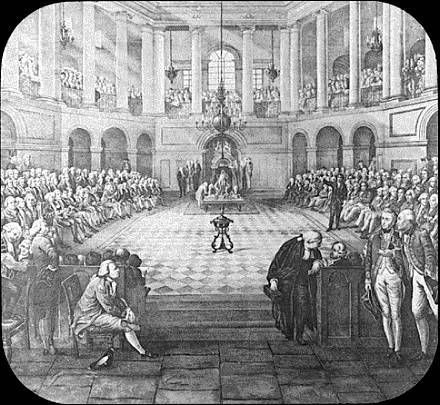
Almost at once the provisional Armenian government based in Artvan under Gaik Katyavan, and the provisional Georgian Government based Kutaisi under Iosef Virtavach sent message to Elbaz desiring a meeting with him. While dozens of telegrams came from Iraq and Kurdistan, at least 14 Emirs were demanding they be seated for the summit as the representative of the Emirate of Iraq or the Emirate of Kurdistan. Elbaz quickly sent positive responses to Virtavach and Katyavan, but had no answer for the Arab Emirs. Instead he consulted with Emir Rafiq Pasha of Hedjaz and devised a cunning plan.
The thought of turning the entire eastern border of Israel loose to the various competing Arab factions was unthinkable. Indeed the Jerusalem Legion had spent months searching for roving Hashemite insurgent bands that continued to raid into the Jordan and slaughter farmers. A stable government was required, and nothing would do that but the one who wore the Crown of Mecca and Medina. The Pasha of Hedjaz arrived in Jerusalem to meet with Elbaz ahead of the arrival of the Georgian and Armenian leaders. Elbaz offered Rafiq the unthinkable, he would deliver all of Iraq, Kurdistan, and the Gulf, to the Crown of Mecca. In exchange the Pasha in addition to his holdings in Syria would rule the land in fief to the Prime Minister and Chief Rabbi of the State of Israel. The Emir accepted, he was shocked to recieve such a massive gift simply thrust into his lap. But he also recognized that he was being drawn deeper and deeper into the web of Israeli influence, now his realm was large but almost indefensible without Israeli arms. As Rafiq departed Jerusalem he began organizing militia and police detachments to cross the border from Syria and march for Karbala, Baghdad, and Basra.
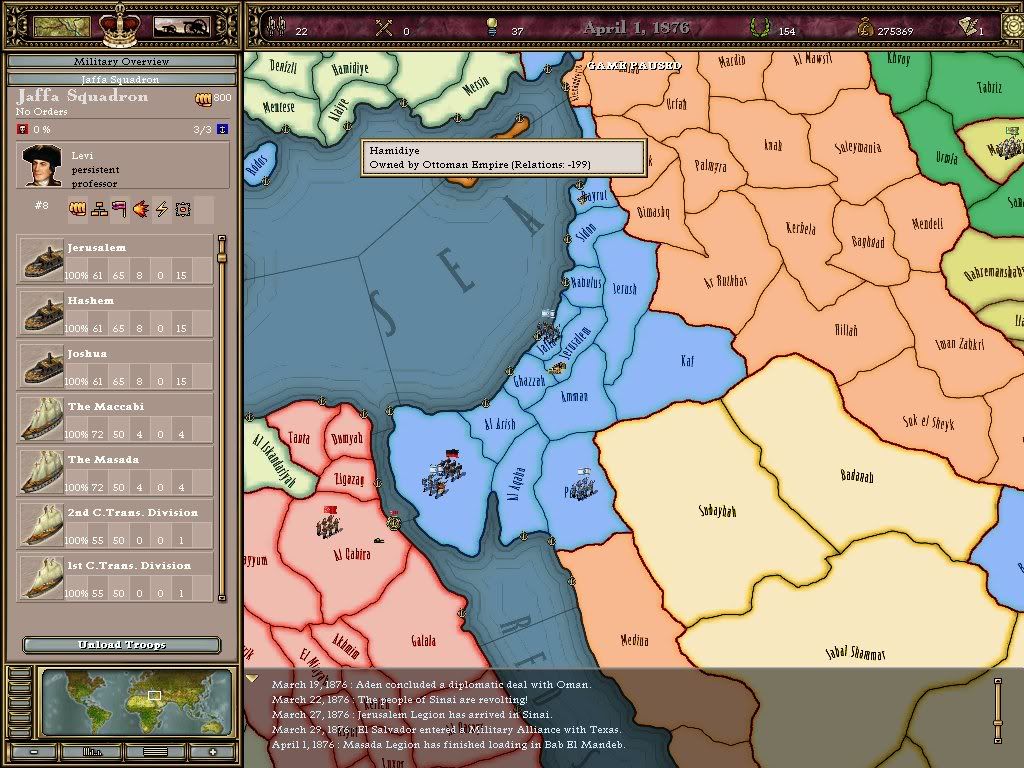
The local Arab Emirs largely accepted the advent of the Crown of Mecca, mostly because the people were ecstatic for the return of an Arabian prince. There was minimal violence, some police were killed in Mosul by Kurdish nationalists but a combined force of Israeli and Hedjazian troops stamped out the rebels. Now with Damascus, Baghdad, Mecca, and Medina all under one banner there was talk on the Arab street of the possability that the Caliphate could be truley reborn, wrested from the Ottoman pretenders and returned to Arabia. The Kingdom of Nejd railed against the "puppetry" of the newly expanded Kingdom of Hedjaz and the "Jewish Empire". Some in the Arab world began to look more and more to the Princes of Nejd as the orthodoxy of Islam, and many in Israel heard their cries and rose to join the ever expanding revolts in the country.
As the Georgian and Armenian leaders arrived there was much trepidation in Jerusalem. There were reports of Jewish, Arab, and Christian terrorist sects plotting to attack the provisional leaders so as to upset the conference and either undo the proposed territorial cessation or to severely harm Israeli efforts. Indeed several alternate routes into the city were planned and false convoys were prepared, it proved useful. A Jewish fundamentalist group attacked what they thought was the Armenian escort only to find crack troops dispatched from David Brigade. After a short firefight and a few bombs the group was destroyed though 13 soldiers had been killed in the ambush. However both Virtavach and Katyavan arrived on time and safely.
In the Knesset they met with Elbaz and some ranking members of the Likud and Labour party. The maps were being examined closely the only details needed to be hashed out were over what Israel would keep, and where the Armenian and Georgian borders would end. The meeting was amiable and the Armenians and Georgians easily came to a concensus on the borders, the Georgian claims mostly lay in Russian held territory anyways. Elbaz for his part claimed the port city of Adana and its province for Israel as a vital extension of Israel's hedgemony in the eastern Mediterranian.
Happily agreeing they all put their names to the treaty, and in an instant Armenia and Georgia became independent states. Though subserviant to Jerusalem.
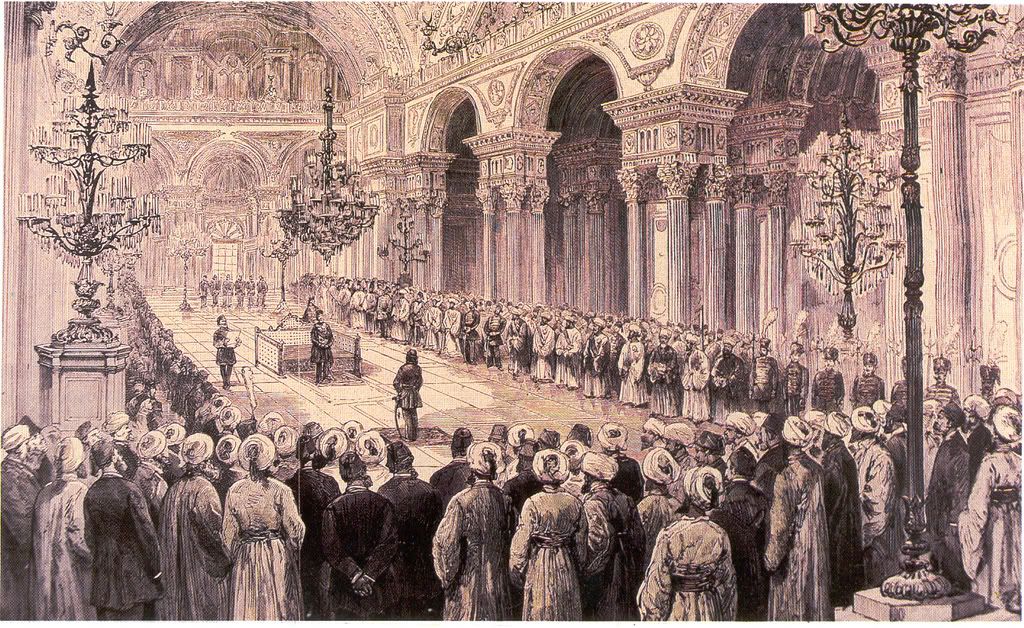
However rebellious Arab emirs and mullahs had realized that they must rise soon before Israeli troops began to return home. For a long while they had taken to minor acts of insurgency, raids, the rare bombings, kidnappings, sabotage, etc. But now the Arab underground was organizing a massive eruption designed to unbalance Jerusalem and seize control of the country.
Arab armies declared themselves in Jericho, Haifa, Sidon, Petra, and Gaza, with Mullah Abdul Al-Rahman surficing with his band of fundamentalist warriors in Petra. Each rebellious army numbered at least 15,000 strong, and was organized on a brigade scale. Mullah Al-Rahman had been sending his agents throughout the country with help from the princes of Nejd to organize the local insurgents in a more military fashion, they created ammunition stockpiles despite Israeli raids, and began organizing officers. Finally as the time for revolt came the various bands small and large organized at pre-prepared rally points and formed into their armies. Al-Rahman sent out couriers to every town in the country to announce the formation of the Islamic Republic of Greater Palestine.
In Gaza the first Arab army was to fall. It was under the command of Sheik Sayid Bin-Baz and it was hoped that he would lead a swift march on Gaza City. However the Councelors had been operating desperatly throughout the country trying to stop the new surge of uprisings despite the barest of support from Elbaz. They managed to discover the rally points of the Arab revolt in Gaza, and as Arab militias mobelized Israeli troops marched into every town, hamlet, and village that was levying troops and burned them to the ground and slaughtered the rebels. Various hodge podges of Arab insurgents managed to reach the rally point 20 miles from Gaza City near Karmala but with only 5,400 arriving Bin-Baz found himself quickly surrounded and outnumbered by the Israeli army. However he fought on furiosly despite all odds and not until Israeli infantry rolled over where he stood and hacked him to the ground did the battle end. All in all 30,000 Arabs were killed in the crackdown and battle.
Elsewhere the Councelors were not so lucky.
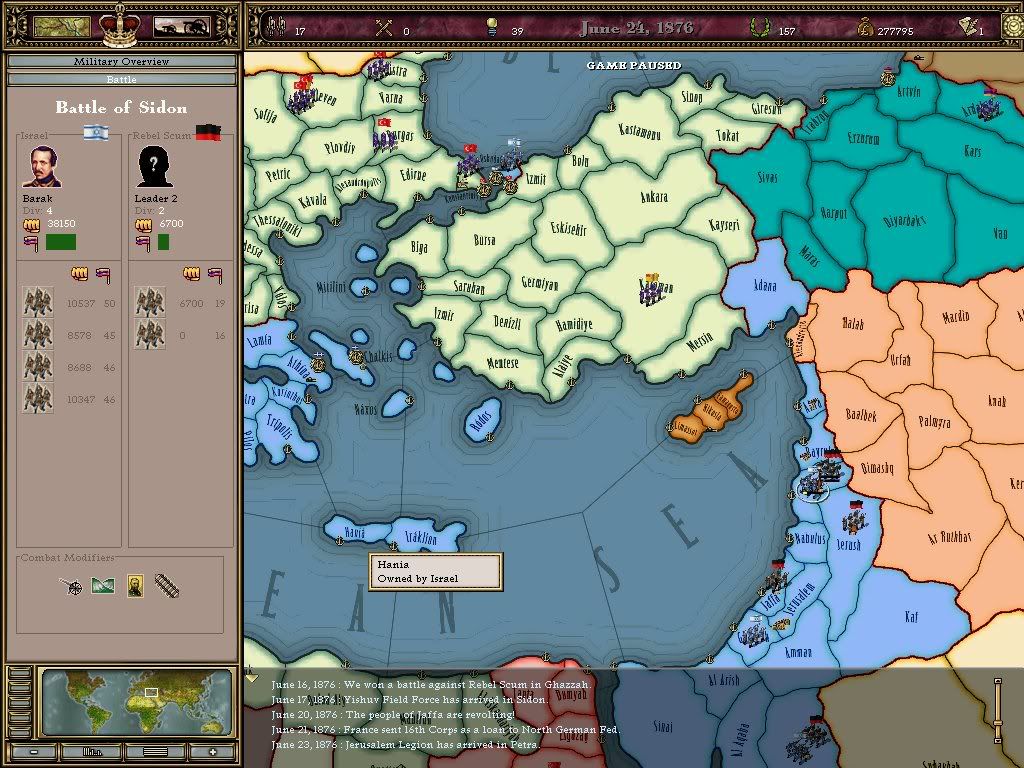
The Prophet Field Force was en-route from Turkey when it received news to make haste from its resting camp in Alexendretta to relieve the police and militia at Sidon. Arab troops had gathered at their rally point and having mustered under arms 17,000 men into 4 brigades of roughly 4,000 each. A renegade Syrian Emir by the name of Bashir Alan commanded the force, he was quick to march on local Jewish and Christian towns that were defenseless against his advance. He burned and massacred along the road to Sidon, a few police battalions harried his advance but he arrived before the city with his strength largely intact.
It was a terrible day as his troops hurled themselves against the city as smoke and fire clouded the battlefield. A few thousand police and Jewish and Christian militia had formed a defense of the city. The best asset they had was a light infantry company stationed in the city and armed with Israeli pattern Mauser rifles. A few mortars were stationed along the Sea Castle and plowed into the Moslem soldiers. But their numbers were too much as they continued to push into the city, thousands were being killed in the onslaught. At the St. Louis Castle 270 Israeli police gave a furious fight to the Moslem invaders. It took 17 hours of furious fighting, more than 900 casualties, and the total exhaustion of their ammunition before the Moslems breached into the castle, they slaughtered the garrison.
However just as things seemed darkest, and as Bashir was prepared to launch a final push against the city the Saul Brigade arrived on the field. Crossing the bridges into the city they charged headlong into the Arab army. They launched furious assaults against the advancing Moslem troops, surprising them and cutting them down in droves. The Arabs managed to keep themselves from routing and formed a defensive line in the cities southern neighborhoods. Bashir detonated ammunition dumps around the city causing fires to sweep through the streets in the eastern and northern districts. The Saul Brigade was forced to find a route through the fires. Meanwhile the Daniel Brigade and the Solomon Brigade aided by artillery demolished some houses in the way of the fire and created a path to the rear of the Moslem army. With bayonet and bullet their sudden attack destroyed the Moslem formation, in fits of rage becoming common with the Orthodox Field Army they massacred all the prisoners they found. Bashir Alan tried to escape the city, but was caught by troops from the Daniel Brigade who promptly lynched him and strung him up by a pole outside the city.
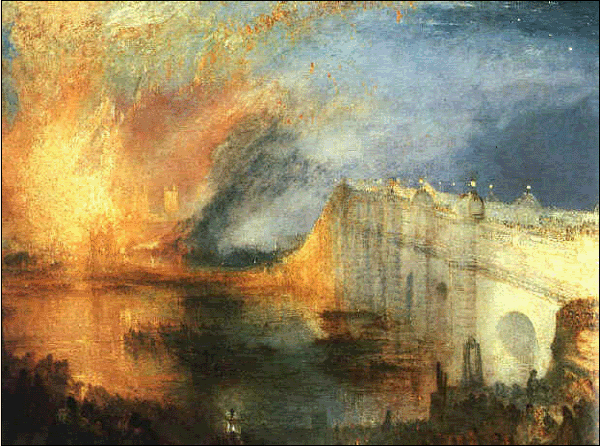
Fires gutted much of the city as the Israel army tried to save as much as they could. In the end 13,000 Jewish and Christian civilians were killed in the battle, another 50,000 were made homeless. Of the 17,000 Moslem troops raised for the fight, 14,000 were slaughtered the rest dispersed. But it was not the end, the vengeaful Prophet Field Force under the guise of counter-insurgency operations swept into the Arab countryside burning and killing for several days. The Arab city of Jezzine was declared a rebel stronghold and bombarded for 3 days, Arab messengers kept trying to surrender and plead their case but were swiftly killed. Finally under pressure from Jerusalem they withdrew leaving 4,300 dead in the city and another 17,000 dead Moslems.
Al-Rahman decried the massacres and took the unprecedented step of declaring a Holy War and calling for a Jihad.
Talk about bitter victory. To have triumphed over the Ottoman Empire, only to have your country torn by internal discord...one can only ask, "Was it worth it?".
Another explosion of rebels!?!?!?!? How nostalgic... Wonderful to see the partition of the newly conquered lands went so well.
Well, there's only so many arabs within your realm. They gotta run out at some point, no?
Paxdax said:Well, there's only so many arabs within your realm. They gotta run out at some point, no?
Nope. There are at least a million, and if he really killed ~17,000 in battle that's still really nothing.
I'm back! Expect an update soon my friends.
Grayghost: Well I suppose we'll have to wait and see, but what if the end result after the civil war is a more secure Israel on the domestic and foriegn front?
asd21593: The Israelis will certaintly try!
demokratikid: Indeed I've managed to create a hedge of subserviant nations along the eastern rim, though in due time I may buy back a few port enclaves but we'll see. The Armenian and Georgian buffer is especially useful to keep Russia away from me, and they can also levy troops to fight alongside me. Also if you've been watching the steady rise of the Lords of Mecca in contrast with the steady decline of the House of Osman, you may begin to see what I have planned.
Paxdax: There are many, I believe at least 2,000,000 in the state. Though if this heavy fighting continues, casualties, emigration, and other factors will take a toll on their populace.
likk9922: Indeed. The casualties for battles are as high as I list them, the event triggers huge revolt risks and thus much higher revolt armies and they take heavy losses. The excess numbers of deaths through riots and massacres represent the steady drop in population that the other revolts I wasnt able to represent through photos capture.
Grayghost: Well I suppose we'll have to wait and see, but what if the end result after the civil war is a more secure Israel on the domestic and foriegn front?
asd21593: The Israelis will certaintly try!
demokratikid: Indeed I've managed to create a hedge of subserviant nations along the eastern rim, though in due time I may buy back a few port enclaves but we'll see. The Armenian and Georgian buffer is especially useful to keep Russia away from me, and they can also levy troops to fight alongside me. Also if you've been watching the steady rise of the Lords of Mecca in contrast with the steady decline of the House of Osman, you may begin to see what I have planned.
Paxdax: There are many, I believe at least 2,000,000 in the state. Though if this heavy fighting continues, casualties, emigration, and other factors will take a toll on their populace.
likk9922: Indeed. The casualties for battles are as high as I list them, the event triggers huge revolt risks and thus much higher revolt armies and they take heavy losses. The excess numbers of deaths through riots and massacres represent the steady drop in population that the other revolts I wasnt able to represent through photos capture.
superskippy said:I'm back! Expect an update soon my friends.
Grayghost: Well I suppose we'll have to wait and see, but what if the end result after the civil war is a more secure Israel on the domestic and foriegn front?
That is certainly the desired end result, but I was referencing the thoughts of the people going through it at the time, and it is certainly a question the common man might have asked. But that is immaterial to the story, I was merely thinking aloud. Keep up the great work.
The Mullah
Prime Minister Elbaz had just finished hashing out the final points of the treaty with the Pasha of Mecca when he finally was briefed about the chaos that had gripped northern Israel. Pouring over the reports on his desk with the death tolls coming in, he wept. All night and day he labored to organize the neccesary military action with his ministers, but he always insisted doing the brunt of the work personally, always having his personal hand in every major action. The stress of the job was crushing, and after years of war, hashing out treaties, and reforming the country was eating away at him. When he emerged from his chambers he had documents and orders which were dispatched every which way. He rested for a while before taking a stroll toward the Knesset hoping to address the body about the present crisis, however as he approached the steps of the building he clutched at his heart and fell forward onto the steps. Immediatly soldiers and servants rushed forward to him trying to revive him, a doctor finally arrived, he examined Elbaz before sadly looking up and shaking his head. The Prime Minister was dead of a heart attack.
It came at the worst possible time for the nation, just as it was in the throes of internal revolt their head of state was struck down. Mullah Al-Rahman used it as a sign to his followers and those who leaned towards him that "Our cause is holy, just, and ordained by Allah who even now has struck the first blow for us! My fellow Moslems I say unto thee, Rise! The hour has come, this is a Holy War! We will free our land and once again a Moslem prince will reign in Jerusalem!" He had made the call of Jihad and in the south even as the army was being arrayed against him, people were answering his call across the country. However in Jerusalem despite all the troubles and under heavy security Elbaz was lain to rest as a funeral procession guided his corpse to the Mount of Olives for burial.
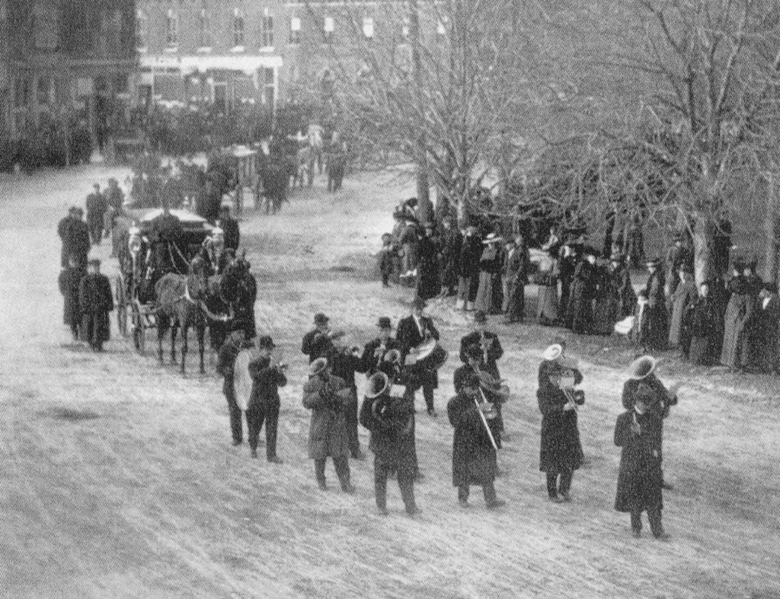
In the south Al-Rahman had raised his standard at the old city of Petra, however other revolts were brewing. The country was acting under the control of Chief Rabbi Benyamin Elaizer until the Knesset could elect a new government as per the nations constitution. Elaizer had the religous fire in his belly and was quick to dispatch troops, to Petra he sent General Avram and the Jerusalem Legion while other troops were dispersed throughout the region.
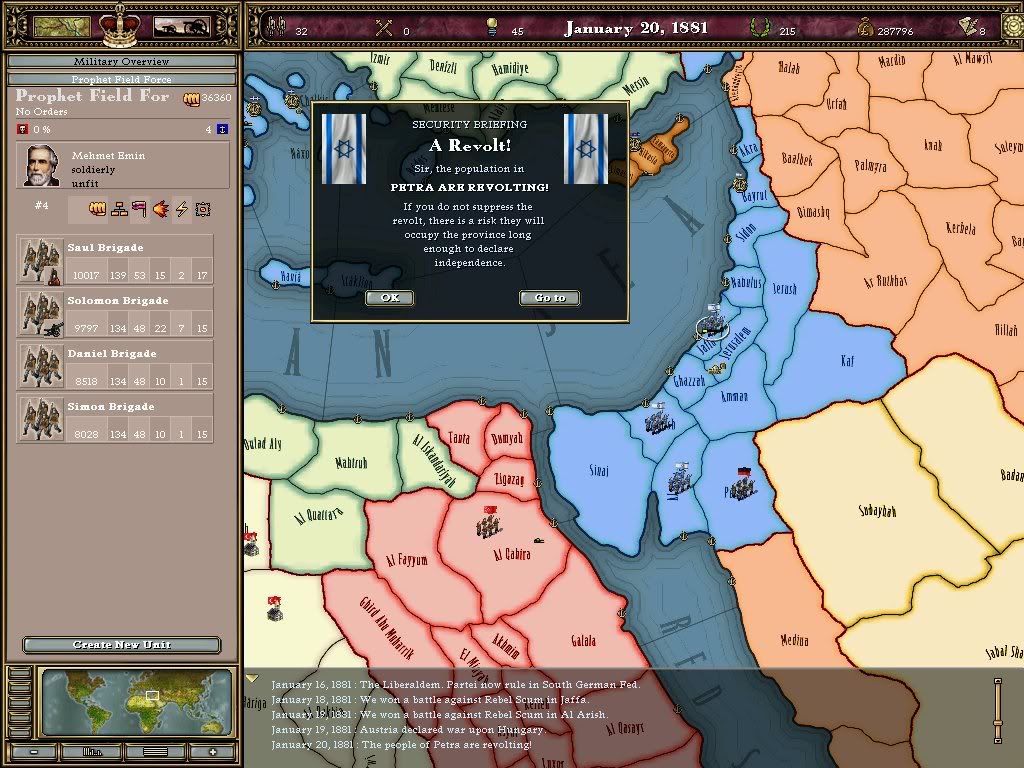
Avram arrived hurridly at Petra only to find a few thousand irregulars and horseman facing him. Still they fought fanatically, he was careful to avoid damaging the ancient place too much, but as his troops launched assaults into the treasury itself damage was unavoidable. Fierce fighting finally quelled the rebels as they were all hewn down. Avram counted 350 of his men killed with 2,200 of his Moslem foes similarily cut down, the few wounded were carted off to Acre to face interrogation by the Councelors at their fortress on Ruad island.
However this was not the force Avram had expected to face and no where among the dead could he find the wiley and devilish Mullah Al-Rahman. Then the reports came in, a great Arab force had swept to the west and was destroying towns and villages outside the city of Eilat while raiders were attacking the very environs of the city. He immediatly turned his tired army around and sent them dashing after what had to be Al-Rahmans main army. As he marched west however he recieved reports of major uprisings in the northern districts of the state, he was worried.
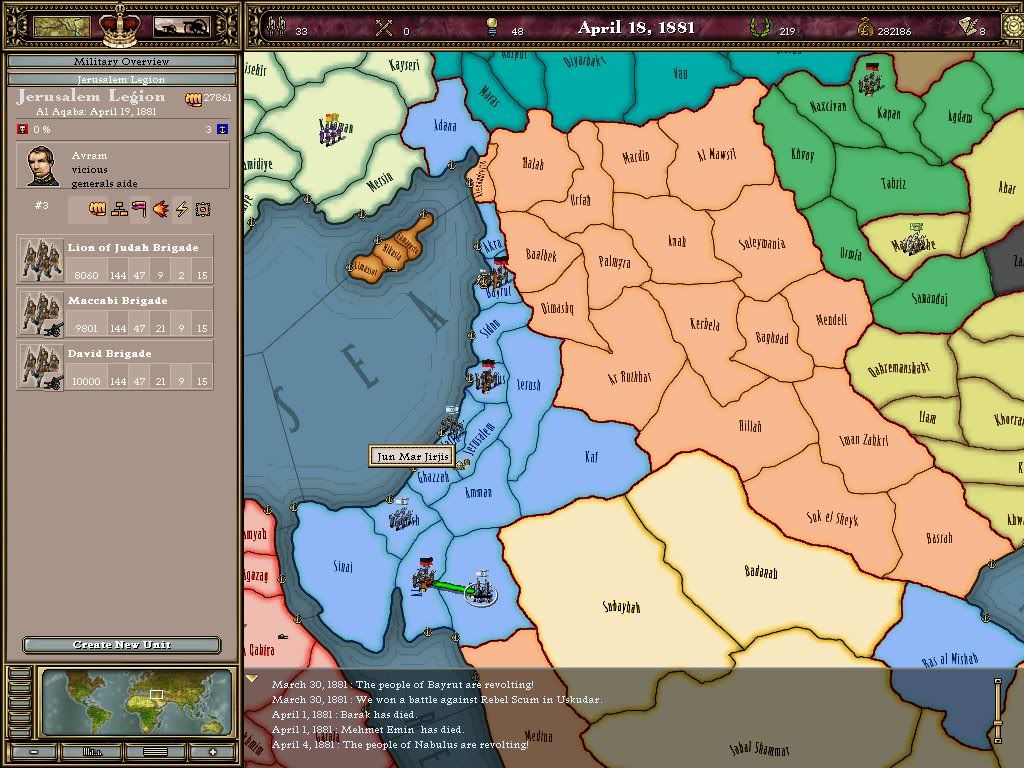
He pushed west with full vigour, his columns were delayed however by fierce skirmishing by Moslem riders. More than once they saw the banner of Nejd flying before them. Pushing forward towards Eilat they found horror by the roadsides, Al-Rahmans fundamentalist army had slaughtered hundreds of people from every village and town he passed through, whole towns and crops had been set aflame. Enraged Avram let his soldiers loose through the Arab towns of the Negev and ended all rules of engagement. His furious soldiers swept Arab militia and villager away at the same stroke. He himself having passed and mourned the massacre of the town of Dalat, rode without batting an eye right on past a mob of his soldiers pulvarizing an Arab village with artillery.
Al-Rahman had gathered 21,000 fanatical fighters to his cause, he was surprised at the speed of Avrams advance but he faced it without pause. He gathered up his marauding troops and arrayed them on the hills outside of Eilat. The port city had trembled before the thought of his troops entering the city, British expatriots, Jews, Orthodox Greeks, and every other creed in the city except for the Moslem quarter hurled themselves into the defense of the city with trench lines extending many times around the city. But Al-Rahman had not tried to take the city, instead he had focused his efforts on the devistation of the province.
Just as the Jerusalem Legion's advance guard was sighted, Al-Rahman handed over control to one of his pupils Emir Manar. Al-Rahman left in secret with a few hundred of his most fanatical followers and headed north, only Manar knew where he was headed. But the Emir welcomed his new task as his men entrenched on the low lying hills and prepared to meet the Israelis head on. Avram had prepared a heavy artillery barrage to stun the Arab lines, while his 32,000 troops were spreading themselves into two massive wings designed to crush the Arab flanks.
The barrage succeeded in tearing apart the thinly entrenched Arab line and providing an opening for the Israeli assault. The attack was aided by the sudden sallies by the beliguered garrison of Eilat, who attacked Manars rear positions. The Israelis moved slowly, they were moving in a skirmish style attack to avoid heavy losses and to use their superior firepower to their advantage. As they finally closed the gap, their guns cut open gaping holes in Manars line. But the Emir was determined to close the gap and personally led 4,000 screaming Moslim insurgents to drive back the Israeli regiment that had forced its way in. However it was a momentary victory for everywhere else the Arab line was collapsing, the entire Lion of Judah Brigade smashed clear through the left flank and into the center.
The battle was over in a few hours, Manar was captured and promptly executed, while the survivors were hounded over the plains and slaughtered, all and all 16,700 of his men were killed in battle or slain in the retreat. Avram's soldiers camped outside of Eilat, allowing the vengeous mobs inside the city to raze the Moslem quarter to the ground, massacring nearly 6,000 people in that orgy of violence, and expelling 18,000 more. The unwillingness of any Moslem community to provide for the defense of any city, it became clear was a death sentence once the crisis passed. Some 973 Israeli soldiers had been killed in the engagement.
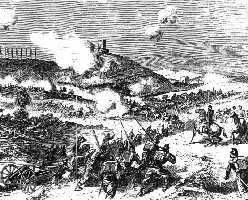
In the north however the Mullah had managed in secret to make to the Jerusalem province. He passed from town to town with his followers rousing the local Sheiks and speaking to all audiences from the old (and almost extinguished) Arab nobility, to the middle class merchants, to the poor farmers. In secret and in the dead of night he would enter the Mosques to give his sermons, and many times he only just barely missed an ambush by the Councelors. Indeed as he was leaving Bethlehem he and his followers were fired upon by robed men, firing back and fleeing quickly they managed to escape but only just barely. Even while hounded however he went everywhere he could to stoke up the embers of revolt, and his message of Jihad.
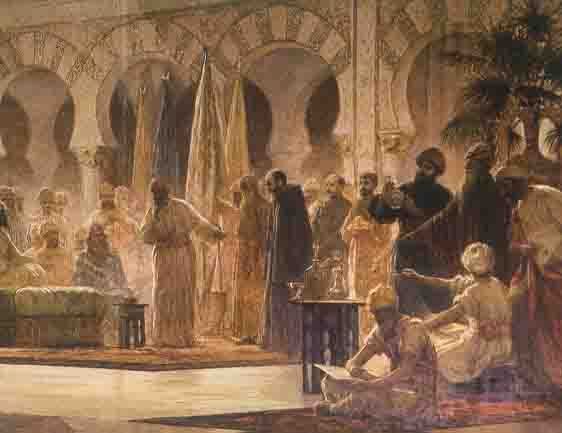
With the revolt in the south quelled, Avram reported to Elaizer that perhaps the crisis had passed. The Councelors warned otherwise and for once they were listened to, Elaizer decided to keep the army in the field at full strength despite what the naysayers in the Knesset were beginning to say. He was vindicated in the worst of ways when frightened messengers came to him crying that "The Mullah is marching on the city with a Moslem host! He claims he will retake the ground where the Mosques once stood! He is coming and already Bethlehem is lost!"
This is turning out to be every bit as bloody and brutal as I figured. You have a great knack for conveying the horrors of this type of conflict. Great job.
Sorry for the delays, but you know me. Expect an update or two this week, it should take us through the 2nd Great Revolt to the next era.
In hind sight it may look to the people that the war was a bit of a mistake, they lost a huge number of men, then gave up most of the land so from their point of view the only thing they gained was the revolts.
I think the winner of the next election is either going to be a real dove or someone with a policy of mass deportation of muslims to some Isreali version of Liberia.
I think the winner of the next election is either going to be a real dove or someone with a policy of mass deportation of muslims to some Isreali version of Liberia.
Well with an interim prime minister in power, and a mobelized Israeli army its going to depend on whether the Arabs can be crushed before the next election, and if they are how many remain? Also in what shape will the economy be in? Israeli troops have marched from Constantinople to the Black Sea, and back again. But thats cost Israel an immense amount of money and the economy is decisively wartime with industry being ignored, perhaps its time to change that?
Ah I cant wait to get this update up!
Ah I cant wait to get this update up!
A bloody rebellion is put down, but another rebel army is marching in. That does not look too good.
What happened to this? Where have you gone, superskippy?! Return! I demand it! For God's sake, we need this AAR!
Please don't say this is dead!
Seriously, update!
 asd
asd
Please don't say this is dead!
Seriously, update!
Sorry everyone, I've been working with a campaign right now and its just been consuming my efforts. But with the primaries over things will be slow until memorial day so I'm hoping to get at least an update up.
superskippy said:Sorry everyone, I've been working with a campaign right now and its just been consuming my efforts. But with the primaries over things will be slow until memorial day so I'm hoping to get at least an update up.
Come back!
Please, this AAR being on hold is like torture!

